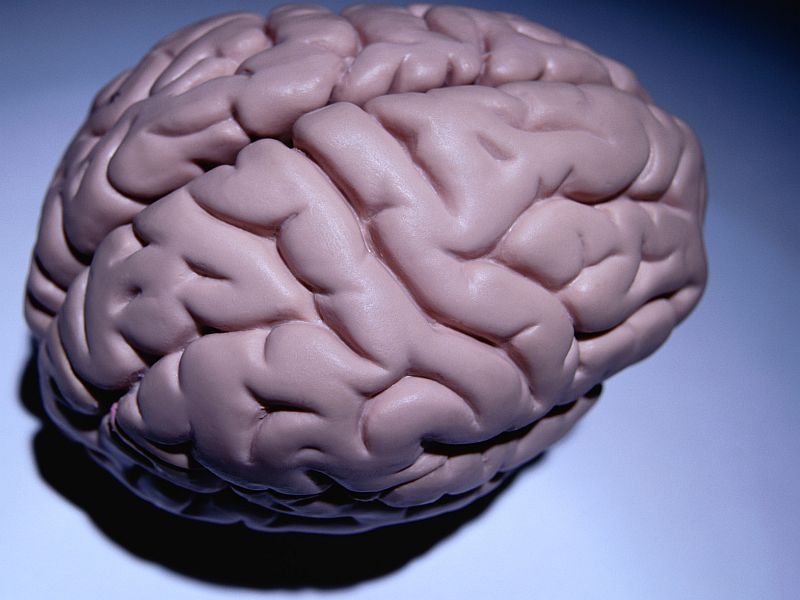Can Obesity Shrink Your Brain?
By Amy NortonHealthDay Reporter

TUESDAY, April 23, 2019 (HealthDay News) -- Obese people may show some shrinkage in their brain tissue as early as middle age, a large new study confirms.
The study, based on brain scans of thousands of adults in the United Kingdom, found that those with higher body fat levels tended to show differences in brain structure compared to thinner people.
Those differences included a lower volume of gray matter.
Gray matter contains most of the brain's nerve cells, while another type of brain tissue -- white matter -- contains the fibers that connect different parts of the brain.
The new findings, published April 23 in the journal Radiology, add to evidence linking obesity to certain brain structure differences. Earlier this year, another study -- pulling from the same data source -- found that middle-aged adults with abdominal obesity tended to have less gray matter volume than their normal-weight counterparts.
What does it all mean? Past research has linked obesity to a heightened risk of dementia in old age. Meanwhile, studies have tied gray matter shrinkage to dementia risk, as well.
So it's possible the current findings help connect the dots, researchers said.
But they were quick to point out the study's limitations: It did not assess people's memory or other mental skills, and it's not clear what the differences in brain structure mean.
It's not even clear that extra body fat is the reason for the brain differences, said lead researcher Dr. Ilona Dekkers, of Leiden University Medical Center in the Netherlands.
One possibility, she said, is that "non-optimal" brain structure comes before the excessive weight gain. The lower tissue volume was seen, in part, in the brain's "reward" circuitry and areas related to movement.
Dekkers said it's also possible that the brain differences result from other things that go along with obesity -- such as poor diet or lack of exercise.
On the other hand, she said, excess body fat may directly affect the brain.
"Recent studies are showing that being obese has a substantial impact on our hormonal and immune systems, which has been shown to lead to inflammatory reactions that also affect brain tissue," Dekkers said.
Dr. Harold Bays, a U.S. endocrinologist who was not involved in the study, made similar points.
"Is it possible that unhealthy nutrition and physical inactivity could be partly responsible, and it's not just the body fat itself?" he said. "Yes."
But he agreed that "dysfunctional fat tissue" may directly affect the brain.
People often think of fat as inert tissue that's simply stored in the body, said Bays, who directs the Louisville Metabolic and Atherosclerosis Research Center in Kentucky.
In reality, he said, fat is "active" tissue. And when fat cells become excessively large -- and accumulate around the heart, intestines and other organs -- they become dysfunctional.
"Basically, your body fat gets sick," Bays said. It churns out hormones and inflammatory substances -- a process that contributes to conditions such as diabetes, high blood pressure and fatty liver disease.
"It's easy to see how that could have adverse effects on the brain, too," said Bays, who is also an officer with the Obesity Medicine Association.
The findings are based on MRI brain scans of more than 12,000 British adults ages 45 to 76. In general, the researchers found, the more body fat people had, the lower the volume of gray matter -- at least in certain brain areas.
They also tended to show more "microscopic" changes in the brain's white matter.
"What are the actual consequences of that in real life?" Bays said. "It's not clear."
For now, he said, "we can add the brain to the list of organs that may potentially be damaged by obesity."
Dekkers said future studies should follow people over time -- to see if obesity at a younger age precedes changes in gray matter volume at an older age.
"It would also be interesting," she said, "to investigate whether the associations we found can be influenced by weight loss -- and see whether reductions in brain volumes may be reversible."
More information
The Alzheimer's Association has more on lifestyle and brain health.

The news stories provided in Health News and our Health-E News Newsletter are a service of the nationally syndicated HealthDay® news and information company. Stories refer to national trends and breaking health news, and are not necessarily indicative of or always supported by our facility and providers. This information is provided for informational and educational purposes only, and is not intended to be a substitute for medical advice, diagnosis, or treatment.

